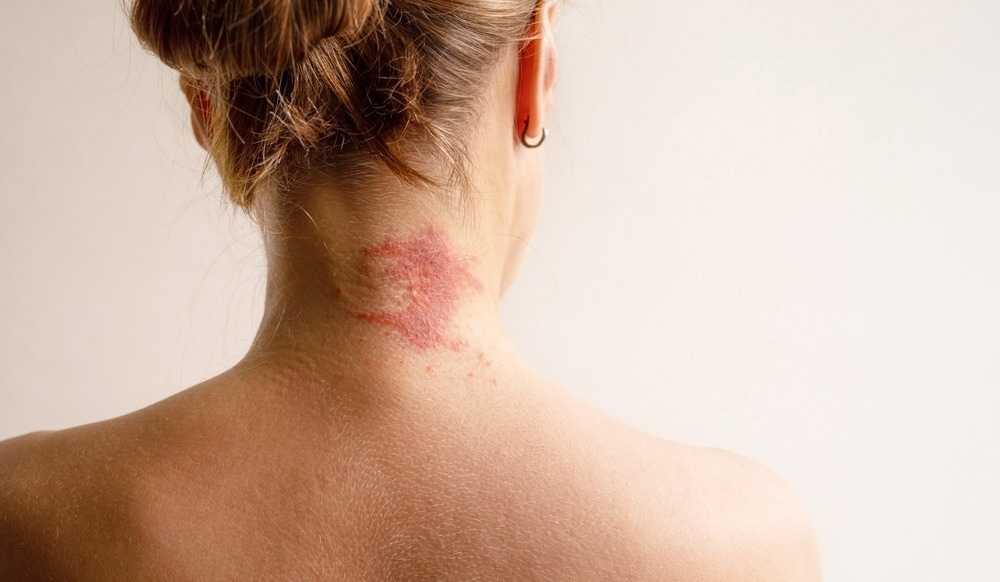
Image Credit: savitskaya iryna/Shutterstock.com
Atopic Dermatitis (AD) is a prevalent, long-lasting skin condition characterized by recurring flare-ups, often necessitating continuous monitoring and adjustments to treatment. The rise of smartphone applications and social media platforms has simplified how patients track their symptoms, gain knowledge about their condition, and record changes over time.
However, patient-reported symptoms, such as itching or sleep disturbances, do not always correspond with the visually apparent severity of the disease. This discrepancy emphasizes the need for more standardized and objective assessment methods, highlighting the increasing potential of digital biomarkers to fulfill this role.
The research team utilized data from Atopiyo, the largest AD platform in Japan, where over 28,000 users have shared more than 57,000 photos of their symptoms along with personal comments since 2018. The AI model developed in this study incorporates three crucial algorithms: body part identification, eczema lesion detection, and severity grading based on the Three Item Severity (TIS) scale, which assesses redness, swelling, and skin damage from scratching.
The AI model, trained using a dataset of 880 images paired with self-reported itch scores, demonstrated high accuracy in diagnosis. In a validation study involving 220 test images, the AI-based TIS (AI-TIS) showed a strong correlation with TIS scores assessed by dermatologists (R = 0.73, P < 0.001) and a significant correlation with objective SCORAD scores (R = 0.53, P = 0.04).
Many patients with eczema struggle to evaluate their disease severity on their own. Our AI model allows for objective, real-time tracking using just a smartphone, empowering patients and potentially improving disease management.
Dr. Takeya Adachi, Study Corresponding Author, Keio University
An interesting finding of the study was the weak correlation between AI-derived severity scores and self-reported itch levels. This observation underscores the disparity between a patient's perception of their symptoms and the objectively visible inflammation, further supporting the increasing need for digital biomarkers to improve precision in dermatological care.
The researchers plan to enhance the model's applicability by including a wider range of skin types and age groups, as well as integrating more clinical features from established scoring systems such as SCORAD and EASI. This research lays the groundwork for AI-powered teledermatology solutions that can provide valuable support to patients and clinicians in real-world scenarios.
Journal Reference:
Okata-Karigane, U., et al. (2025) AI-Based Objective Severity Assessment of Atopic Dermatitis Using Patient Photos in a Real-World Setting: A Digital Biomarker Approach. Allergy. doi.org/10.1111/all.16586